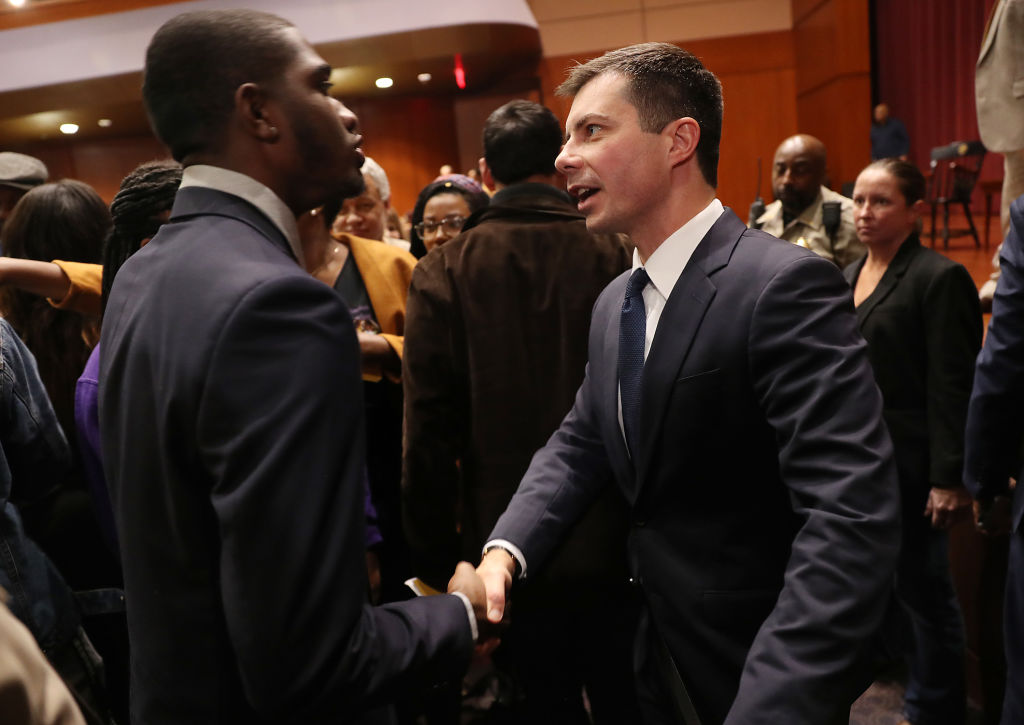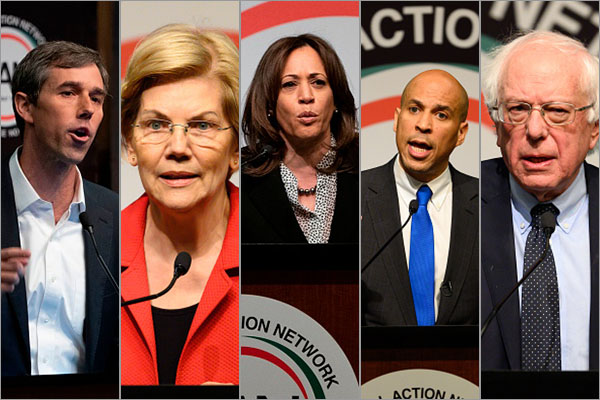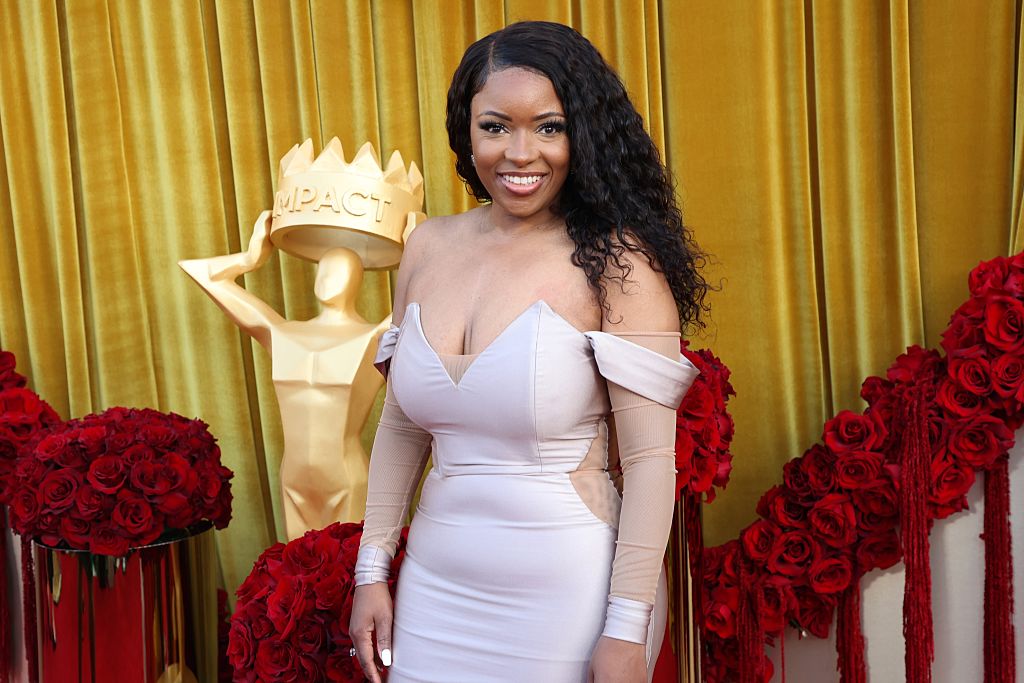Election 2020: HBCU Students Courted By Candidates In Atlanta
Black College Votes Matter, Presidential Candidates Are Finally Finding Out
ATLANTA — The fight for the Black vote came to Atlanta this week for the Democratic debate and culminated in candidates holding a series campaign of rallies, including Bernie Sanders, who held court on the historic campus of Morehouse College on Thursday. Each person credibly seeking the Democratic nomination has been looking for chances to make inroads with Black voters before the primaries begin. For many of the candidates, that meant making overt appeals to students at historically Black colleges and universities (HBCUs).
MORE: Stop Telling Black Folks To Settle For A Candidate Just To Beat Trump In 2020
College campuses are many times ripe with first-time voters, and Elizabeth Warren, Pete Buttigieg and Julián Castro all held or participated in events that sought to gain support among Black voters and HBCU students in particular. However, the two major Black candidates — Cory Booker and Kamala Harris — took part in the debate at Tyler Perry‘s new studios but decided against visiting the Atlanta University Center, which is composed of Morehouse, Spelman College and Clark Atlanta University (AUC). The absence of Booker and Harris rubbed some students the wrong way.
“I feel as if they think it is guaranteed that they will get the Black vote,” Onna Geddie, a freshman Sociology major at Spelman, told NewsOne. “It’s kind of disheartening that they haven’t come, but it shows where their interest is.”
Booker and Harris skipping out on the AUC during this key point in the election process wasn’t the only critique that students had for the slate of Democratic White House hopefuls. Students interviewed during Sanders’ rally said that while they have their preferred candidates, there were still questions about whether they’ve truly advocated for Black people and deserve the Black vote.
That uncertainty was especially extended to Buttigieg, the mayor of South Bend, Indiana, who has been polling at exactly 0 percent with Black voters. Students have taken notice.
“Pete has had some historic problems with Black relations in South Bend,” Ari Wright-Thompson, a freshman political science major at Morehouse, said of Buttigieg, who visited the all-male school this week. “As of right now, he is not doing much for Black voters.”
Wright-Thompson was all but echoing the concerns of other Buttigieg critics who have said he doesn’t have a good enough reputation with Black voters to be considered as a viable candidate. To add insult to injury, Buttigieg has stated that he believes convicted felons shouldn’t have the right to vote, an issue that disproportionately affects Black men. When you factor in Buttigieg’s lack of action following the killing of Eric Logan, an unarmed Black man shot by South Bend police in June in a still-unresolved death, young Black voters, in particular, were unsure of how the mayor really feels about Black lives.
But after a week of Buttigieg connecting with voters and a solid debate performance in Atlanta, some students admitted they were gaining a better understanding of who the candidate truly is.
“After the conversation he had with Morehouse, I feel like he is more genuine,” Morehouse SGA president John Bowers III said. “But at first he does come off as pandering.”

Pictured: Democratic presidential candidate, South Bend, Indiana Mayor Pete Buttigieg greets people after participating in a conversation with Dr. Adrienne Jones at Morehouse College Ray Charles Performing Arts Center on Nov. 18, 2019, in Atlanta. | Source: Joe Raedle / Getty
Indeed, there is a thin line between pandering and genuinely caring for Black people. It’s something that candidates have had a difficult time managing. But visits to HBCUs are something that Black college students genuinely value, especially if it is done correctly. The interactions with the historic spaces and the recognition of what they mean to Black people is something that resonates.
“I appreciate candidates like Warren and Sanders for showing up here,” Gavin Branch a junior psychology major at Morehouse, said. “They know how important the HBCU vote is.”
Sanders, who hit on all of his classic talking points including free medical care for all, affordable housing, eliminating college debt, raising taxes for the rich and criminal justice reform, emphasized how votes from HBCU students represent the two most important demographics in the Democratic primary: The Black vote and the young vote. The way those two groups cast ballots will likely signal who will win the nomination (and quite possibly the election), and Sanders has done a successful job in relating to the experiences of both.
“I feel like Bernie’s relations with young Black people is the most developed in the race right now,” said Bowers, the Morehouse SGA president who is also an economics major political science minor. “His plans on social development are much more thought out than any other candidate.”
Sanders also paid homage to some of the alumni who came out of the AUC, as much of his speech was centered on the importance of the legacy left by the Rev. Dr. Martin Luther King, Jr., Morehouse’s most famous graduate. Sanders also ignited the loudest crowd reaction when he mentioned the 2018 Georgia gubernatorial race that saw Brian Kemp win a controversial election against Spelman’s own Stacey Abrams, inspiring the crowd to break out into an impromptu “Stacey” chant.
Sanders also announced a new proposal that would establish a fund that would create teacher training programs at historically Black colleges and universities (HBCUs) that would see $5 billion put toward development, recruitment and resentment of these teachers.
But not everything he said was historically accurate. That was especially true Thursday when Sanders referred to Adolf Hitler as “the father of white supremacy” while he was telling a story about how his father escaped Nazi Poland. Sanders’ description of Hitler ignored slavery, which began about 300 years before the rise of Nazis in Germany, and placed a false timeline on the history of racism in the world’s order.
That’s not to say Sanders didn’t address some of the top concerns expressed by young Black voters, including the students in attendance, to whom he offered what he said were solutions to narrowing the wealth gap and mass incarceration of Black people in this country. He also touched on the idea of marijuana equity in a new billion-dollar industry that has seen mostly white people get rich from a business that has put a disproportionate number of Black and brown people behind bars.
“We are going to make marijuana legal in every state of this country, we are going to expunge the records of those arrested for possession of marijuana,” Sanders told the crowd. “We are going to help business in the African American community and the Latino community profit from the legalization of marijuana.”
Sanders’ speech and policy proposals have been inspiring college students ever since his White House run in 2016. And while some of those students have since gone on to graduate, Sanders’ message still seems to register with and instill confidence in that same demographic now as it did back then. The only difference now is that he and the other candidates seem to be making a concentrated push to specifically target HBCU students.
“I have been supporting Sanders since the 2016 primary,” Victoria Iglesias Roche, a senior political science major at Spelman, said. “Bernie is the most liberal and progressive representative, and he has the track record in Vermont to get it done.”
Watch Sanders’ full Morehouse rally below.
SEE ALSO:
How Bernie Sanders’ Student Debt Forgiveness Plan Would Affect Black Borrowers
Angela Rye Calls Julián Castro The ‘Chief Racial Justice Advocate’


















